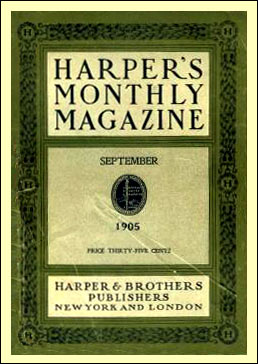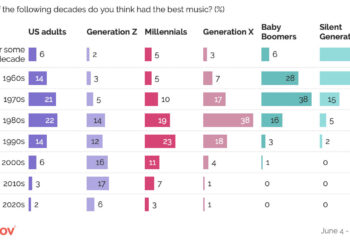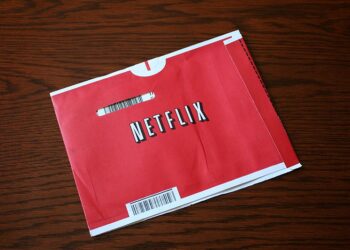
- Image via Wikipedia
Two recent essays are surprising for opposite reasons. In one, John MacArther, the publisher of Harper’s Magazine reveals himself to be in a muddle about the Internet. It’s shocking that such twaddle can still pass as enlightened prose, and in a magazine I used to respect. Here’s an interpretative distillation of the conflicting and confused concepts you encounter as you go through the essay:
- MacArthur: I was at fancy restaurants pre-2000 and at UPI when it still mattered, and had my fill of all the Internet I needed. Translation — I’m old, tuned out, and ranting from the sidelines.
- MacArthur: Internet people who have business models I don’t understand are like “free trade” advocates, who I don’t like. Translation — I don’t understand how new business models work, and I had to insert an ad hominem attack on free trade into my essay to maintain my quota. Score!
- MacArthur: Writers and editors are being driven into penury by Internet wages. Translation — Subconsciously, I can see the writing on the wall, and I’m scared for my job.
- MacArthur: The Internet is anti-democratic and anti-emotional because it placates the masses with echoes of themselves. Translation — I come from the era of anti-democratic, anti-emotional, placating condescension of mass media, and I don’t understand how much less anti-democratic, less anti-emotional, and less placating and condescending new media are. Therefore, I’m upset.
- MacArthur: The lack of political change in America proves how useless the Internet is. Translation — Gerrymandering, campaign financing abuses, mass media manipulation, suspicious Supreme Court decisions, a lockstep Republication party, and the military-industrial complex — ack, it’s the Internet’s fault!
- MacArthur: Facebook’s organizational structure still has a boss at the top, so it’s nothing new. Public journalism is a joke. People think I’m a fogy. Translation — I am a fogy.
MacArthur also has to ignore major social and political events unleashed by the Internet, including the Internet-laden story of Barack Obama’s election (the grassroots Internet fundraising, Obama Girl, and more), the role of Twitter in Iranian elections, and the repeated stories of flash mobs and smallscale political uprisings spurred by Internet communications. But apparently his world view is too precious to be disrupted by facts.
Elsewhere, another publisher, renowned for his success on the Internet, finds himself still scolding publishers to wake up and smell the coffee. Tim O’Reilly, in a relatively brief note, talks initially about the differences between “formats” and “forms.” Forms are different ways of presenting the same information — a hardcover, a paperback, an e-book are all different forms of the same work. A new format, on the other hand, is more revolutionary. Wikipedia is a new format of encyclopedia.
O’Reilly saves his scold for the end of the note:
Publishers think way too narrowly about what kind of business they are in, and as a result, are blind to how the competitive landscape is changing under their feet. If someone has roots in ink-on-paper, they are a publisher, but if they are web- or mobile-native, they are not. But this is wrong-headed!
Do you hear that, Mr. MacArthur? Publishers aren’t defined by legacy or trappings. They’re defined by . . . publishing. And there are more publishers than ever now.
Harper’s was once a great magazine, but the Atlantic is reinventing itself much more effectively, according to a recent New York Times article:
The Atlantic, the intellectual’s monthly that always seemed more comfortable as an academic exercise than a business, is on track to turn a tidy profit of $1.8 million this year. That would be the first time in at least a decade that it had not lost money.
The Atlantic did this by scrupulously embracing the Internet, not by behaving with insular arrogance. And that’s the lesson here for me — in a time of revolutionary distribution, publication, and communication technologies, new business models, and new interaction paradigms, the winners will be defined by their adaptation abilities and foresight, while the losers will grouse from the sidelines about how upsetting it all is.
Discussion
6 Thoughts on "Two Publishers — One Old, One New — Square Off Without Knowing It"
Not disagreeing with the rest of your post, but Iran’s “Twitter Revolution” has been repeatedly debunked as a myth:
http://www.subtraction.com/2010/06/14/the-myth-of-the-iranian-twitter-revolution
http://m.guardian.co.uk/commentisfree/2010/jun/11/iran-twitter-revolution-myth?cat=commentisfree&type=article
I don’t read these the same way you do. The main quibble from these commentators seems to be with the use of the term “revolution,” not the role Twitter had in allowing protesters to communicate and coordinate (Facebook also played a role), mostly in the first days before sanctions were put in place. Twitter had a dual role — some utility inside Iran, but a larger role outside. As the Foreign Policy piece itself concludes:
It’s not that Twitter publicists of the Iranian protests haven’t played a role in the events of the past year. They have. It’s just not been the outsized role it’s often been made out to be.
The phrase “Twitter Revolution” is shorthand for a political struggle in Iran that brought Twitter to the fore in the West in ways it had never been before. Your sources quibble with this by redefining it as an intramural Iranian event and then noting Twitter’s limited role inside Iran, when in fact it was something larger on the world stage. So, I disagree that it was “a myth.” It’s only a myth if you redefine it in a limited, convenient, and cynical way.
But let’s be clear about the actual role Twitter played in Iran, which was minimal. Text messaging, as one example, was much more important. Twitter was as much a source of rumor and disinformation as it was anything else. The phrase “Twitter Revolution” is something of a western-based fantasy, wishful thinking. Twitter was not at the heart of the short-lived activism within the country, and as a revolution, it did not accomplish much. What exactly has changed in Iran since that time?
P.S.: letting a bunch of westerners armchair quarterback an event without any actual involvement or risk, while at the same time promoting themselves doesn’t strike me as being particularly revolutionary.
I don’t believe The Atlantic did what it claims it did. Why is everyone taking the magazine’s management at their word? They improved their editorial program. That’s the big change. The magazine is now worth reading, online or off. It’s great that they have embraced new media, but without the new editorial direction, the publication would still be as dull as a New England boiled beef dinner.
I agree that editorial change was one key to their newfound success, and that we should be cautious about their claims, but it does seem to me as a reader that they’ve pushed the print to the back of their priorities in some important ways, and embraced online distribution and features much more aggressively. By doing so, editorial changes haven’t been hidden, but exposed. Harper’s may be changing itself as well, but I rarely encounter it online in any vestige, so it’s very fringe as an information source, an anachronism.
I also will quibble with the Atlantic’s “improved” editorial program. I think it’s actually a bit shallower and more sensationalistic than it used to be. But that’s probably part of making the brand work in the current information environment.
It’s “difficult” to take any “essay” “seriously” when it’s so “riddled” with “scare quotes.”
MacArthur’s rant belongs on a blog (oh the irony), not in Harper’s Magazine.



